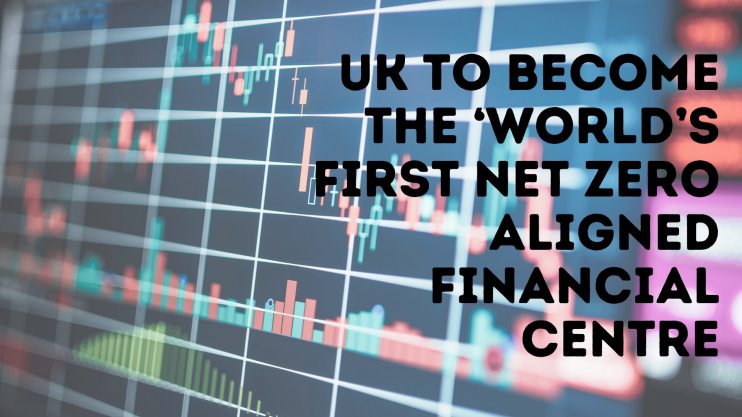How financial services must respond to the Chancellor’s challenge to the sector at COP26

The major surprise announcement for the UK’s financial sector at COP26 came this week in the form of a pledge by the Chancellor, Rishi Sunak, for the UK to become the ‘world’s first net zero aligned financial centre.’ This very bold ambition, which we see as a natural leadership step for the UK to take as the first major economy to legislate to cut emissions to net zero by 2050, offers an excellent opportunity for the sector to help define what this may look like in practice.
This is especially important as our collective understanding of how we define net zero in the context of the financial services industry in the UK remains very nascent.
More transparency
Over the course of COP, we have seen policymakers announce initiatives to bring more transparency on how businesses are responding to the climate crisis. This includes the creation by the UN of an expert panel to analyse net-zero emissions pledges, which could be promising in ensuring net-zero targets are not self-defined and will reduce emissions in line with keeping global warming to 1.5 degrees.
The Chancellor’s pledge could similarly bring much greater focus and transparency on the role of finance in contributing to a net-zero future and move the UK economy forward faster towards its 2050 target. Collectively, we will need to define this world-leading ambition in the UK and consider how we get there with the urgency needed to act.
Active stewardship
The finance sector should be actively engaged in these discussions, identifying the actions that will be needed from the government and steps the industry needs to take. Further strengthening investors’ stewardship role will be one area; stewardship encompasses the activities undertaken by investors to promote the long-term success of companies, including voting at a company’s Annual General Meeting. Active stewardship will remain critical to the transition and industry and policymakers could consider developing more specific approaches to ‘net-zero stewardship,’ taking inspiration from recent industry frameworks such as the Paris Aligned Investment Initiative (PAII). Continued signals from government recognising engagement’s positive role would be another hugely positive step.

Higher government investment
Committing greater levels of public investment to the ‘green economy’ should be considered another defining feature. Higher government investment would be hugely beneficial as a signal to finance to help plug the funding gaps required for the UK to reach its emissions targets, and encourage the positive flow of private finance towards sustainable investments and projects.
Compatibility with Europe
Finally, globally-leading regulation should be at the core of defining a net-zero finance sector. This means a world-leading ‘green taxonomy’ in the UK that can effectively track the ‘greening’ of financial flows and tackle ‘greenwashing’, allowing the leaders in this industry to shine. It also means an effective ‘Sustainability Disclosure Requirements’ framework to disclose decision-useful information on sustainability and make sure this is used to impact firms’ decision-making on net zero. Key to the smooth operation of both regulations will be compatibility with Europe’s regulations, still seen as the global leader by many investors and clients, and considering how a broader group of activities that will drive the net-zero transition can be reported in future.
These are just some of the initial steps the UK could consider as it turns its attention to meeting the Chancellor’s bold ambition, which our sector should warmly welcome.
By James Alexander, Chief Executive, UKSIF